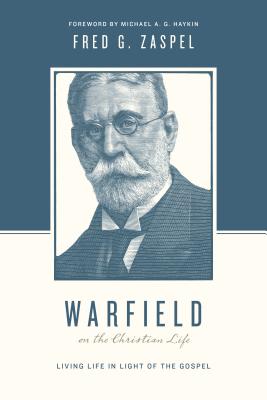⏱️ Estimated Reading Time: 4 min read
B.B. Warfield, the great Princeton theologian of the 19th century, has sometimes been hailed as a scholastic theologian. A scholar interested purely in the academics of dogmatics, not the kind of theologian you would consult on matters of the Christian life. Perhaps that is why Zaspel has been tasked to write this volume on Warfield for Crossway’s Theologians of the Christian Life series. This often criticized teacher has much to teach us about the interrelationship between deep theology and Christian living.
The dominant theme across the pages of this wonderful volume in the series is that theology is related to life. Zaspel notes:
For Warfield theology is not merely some added, optional dimension to the Christian life: it is the very stuff of Christian living. (37)
If we are sometimes inclined to divide truth and life, theology and practice, studying and “following,” Warfield would press us to reconsider our divisions. The Christian life requires Christian truth because, as Warfield sees it, the “entirety of the Christian life and experience is our response to revealed truth” (38).
Zaspel has broken his book down into four parts. He begins, as each of these volumes does, with a simple introduction to the man himself. We learn in chapters 1 and 2 that Warfield was a top-notch scholar, known as the defender of the doctrine of Scripture’s inerrancy. Yet, we also get to peek behind the veil of this theological pillar. He was not a cold academic, but a man of passion, compassion, and affection. He loved God and evidenced it in his speech, and he modeled Christian charity, patience, and service. These attributes are specifically noticeable in the descriptions of Warfield’s tender care of his invalid wife.
Part two focuses on the “Foundations of the faith.” Zaspel notes, and evidence, that while Warfield is most known today for his defense of Scripture, he wrote on the whole range of theological topics. He had a theological acumen on nearly every issue in Biblical studies, says, Zaspel. This becomes evident as chapters 3-8 dive into the core doctrines of the faith: the authority of Scripture, redemption, justification, conversion, the Holy Spirit, and sanctification. In each chapter readers not only get a glimpse of the brilliance of Warfield’s conservative orthodoxy, but they see how each doctrine connects vitally to their Christian life. Theology is the heart of Christian living.
More particularly the gospel is the heart of Christian living. Zaspel’s exploration of Warfield’s doctrine focuses on the gospel because it is only through a deeper understanding of the person and work of Christ that our Christian lives really blossom. Yet knowledge, for Warfield, is not merely mental assent, it is about adoration and appreciation. Zaspel notes:
Warfield teaches us that we will never outgrow the gospel. We will never reach such levels that we should “move on to better things.” There is no better thing. And there is nothing so well suited to our growth and faithfulness than this. (231)
The gospel is entirely practical and relevant to our day-to-day living. It is the heart of the Christian life. This great theologian invites us to live in light of the gospel.
Part three directs our attention to what Zaspel calls “Orientation and Perspective.” Here readers are introduced to some of the more particularly existential aspects of the Christian life. Of particular I love Warfield’s chapter on divine providence, which aims to give much hope to those in suffering. Again, Warfield demonstrates the practicality of theology.
Part four concludes the divisions of the book by exploring our “living response” to this gospel message. In some sense, readers will see the familiar themes of the spiritual disciplines addressed in chapters 12-19. His chapter on the religious life was particularly insightful as so few writers attempt to address such a big topic. Warfield does so beautifully and always with an eye toward the Christian’s living response to revelation.
This is a wonderful book that not only introduces readers to the brilliant work of a gifted American theologian, but this work compels us to see the essential nature of Christian doctrine. We divide doctrine and life, but Warfield, and more pointedly Scripture, does not. Doctrine is vital to true Christian living. Fred Zaspel has done a wonderful job of demonstrating this truth through the life and teachings of B.B. Warfield. I highly commend Warfield on the Christian Life not just as a good history book, but a good devotional book.



